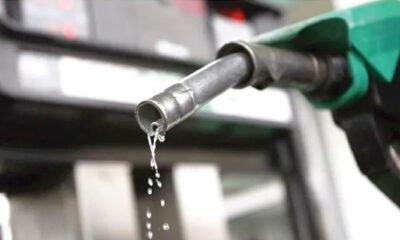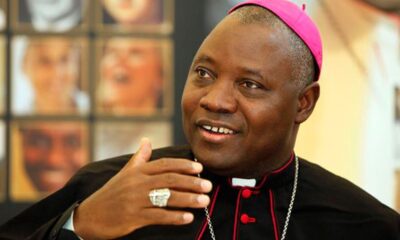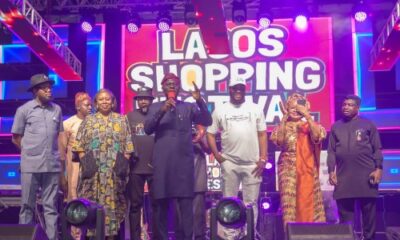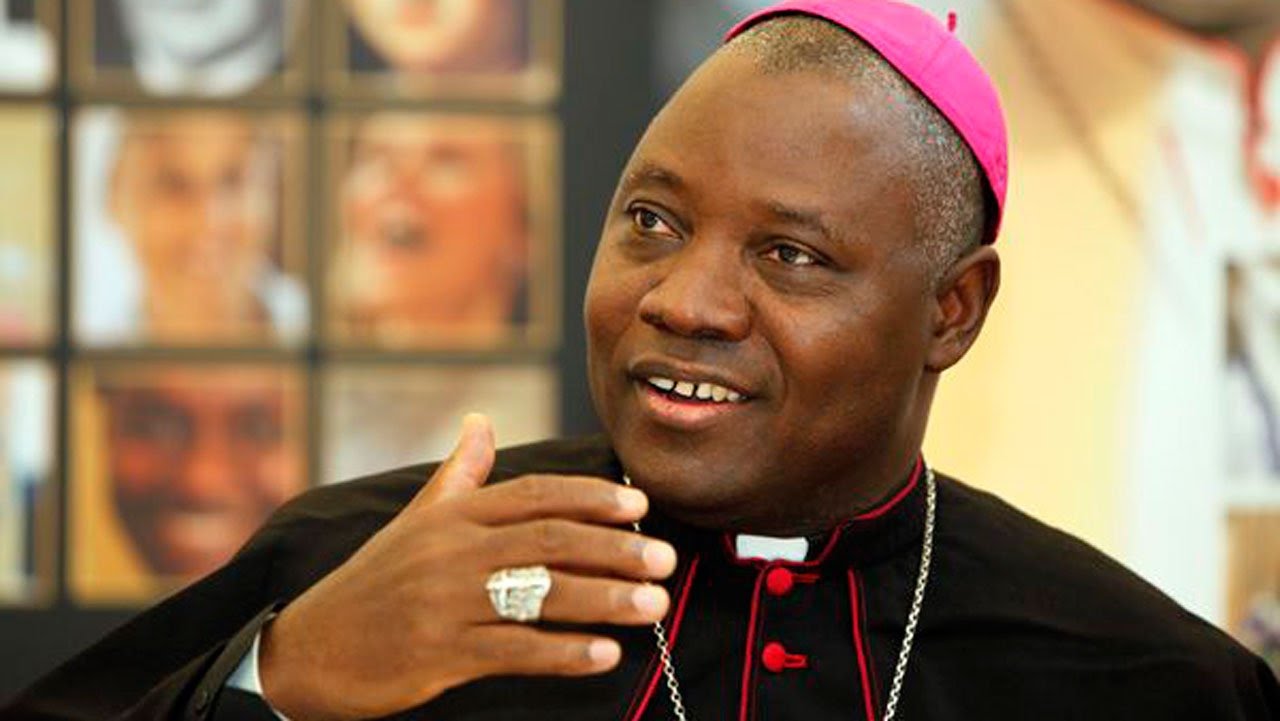Four days after the Central Bank of Nigeria (CBN) directed commercial banks to suspend over-the-counter dispensing of the new naira notes and use their Automated Teller Machines (ATMs) to ensure wider circulation, compliance level has been abysmally low as customers continue to get the old currency slated to be junked on January 31.
Meanwhile, the policy on restriction on daily cash withdrawal takes off today, Monday, January 9.
Under this arrangement, the maximum weekly limit for cash withdrawals across all channels by individuals and corporate organisations is now N500,000 and N5 million, respectively.
Thus, anyone or organisation that has a compelling need to withdraw above the approved limits to transact legitimate businesses will pay a processing fee of 3percent and 5percent for individuals and corporate organisations, respectively.
Aside that, the financial institution shall obtain the following information from the customer, at the minimum, and upload same on the CBN portal created for the purpose: Valid means of identification of the payee (National ID, International Passport, or Driver’s License); Bank Verification Number (BVN) of the payee; Tax Identification Number (TIN) of both the payee and the payer; Approval in writing by the MD/CEO of the financial institution authorising the withdrawal.
More so, third party cheques above N100,000 shall not be eligible for payment over the counter, while the extant limit of N10 million on clearing cheques still subsist.
The earlier limit for over-the-counter weekly cash withdrawal for individuals was N100,000 and N500,000 for corporate entities.
The apex bank warned banks and other financial institutions to live above board as anyone caught aiding and abetting the circumvention of the policy will be severely sanctioned.
Anxious customers who thronged various ATMs in Abuja, Lagos and other parts of the country at the weekend were shocked to see old and in some instances, dirty naira notes gushing out of the machines.
In Kubwa, Wuse and other parts of Abuja, customers on various ATM queues at the weekend said they did not get the new notes and many went home sad.
John Akomas, a Point of Sales operator lamented. “I was at three ATM machines in Abuja on Sunday to see if I could get the new notes, but to no avail.
“In Kubwa, all the banks along Gado Nasko Road dispensed old notes. I know because many of us PoS operators do exchange information through our WhatsApp groups. When a colleague tells us where he got his new notes from, we go there because customers in town are really pressuring us to pay them with the new notes. Nobody wants to have the old notes because they expire in three weeks time. The pressure is too much on us”, he lamented.
Mirabel Moses, a flea-clothes dealer also said her customers keep paying with old notes which is a huge challenge for her because she hardly has the time to go to the bank to make deposits.
“I pray this new notes problem is quickly sorted. I don’t want to have old notes with me”, she said.
However, a Tier 2 bank official in Abuja who did not want to be named because he was not authorised to speak on the matter said: “We get tremendous pressure from customers. We keep trying to explain the situation to them on a daily basis. Many come shouting at the staff as if we hoarded the money but it’s not sufficient. That’s the brutal reality. We are expecting more supplies from the CBN. Hopefully, things will be a lot better this week. We also advise customers to use the alternative electronic banking channels. That’s the whole essence of these initiatives of the CBN. It empties into the cashless policy blueprint”, he said.
Meanwhile amid complaints of inadequate supply of the new Naira notes, the Central Bank of Nigeria (CBN) at the weekend, insisted that banks have enough new notes to circulate across the country.
This is coming after reports filtered in that the apex bank had ordered DMBs to immediately stop the payment of the new naira notes to customers over-the-counter withdrawals.
The report noted that the CBN instead, directed that the banks should rather load their Automated Teller Machines (ATMs) with only new notes to ensure that the currency circulates across the country ahead of the January 31, 2023 deadline when the old notes will no longer be legal tender.
According to the report, a source in one of the Tier-1 banks who acknowledged the directive from the CBN stated that her bank on Thursday issued a memo in that respect to all the branch managers to enforce the CBN order.
The memo, which was titled, ‘Urgent update on currency redesign’ and signed by the Group Head, Retail Operation, stated, “The CBN has mandated that we immediately stop the Over-the-Counter payment of the new N200, N500 & N,1000 currency. Instead, all new notes should be loaded into the ATMs for customer withdrawals. This is effective immediately please.”
The report also noted that the source, who is a manager in one of the bank’s branches in Lagos, however, complained that the new notes were in short supply, hence the branch decided to load a mixture of the old and new N1,000 and N500 notes in the ATMs for customers to withdraw.
It was earlier reported that twenty five days after the release of the newly redesigned N200, N500 and N1,000 notes and with 22 days left before the old notes cease to be legal tender in the country, Automated Teller Machines (ATMs) in Lagos are yet to dispense the new notes.
This also led to calls to extend the deadline to allow the circulation of the new notes.
However, the CBN clarified that it did not ban the banks from paying customers the new notes over the counter, pointing out that the directive to the banks to dispense new notes via ATMs was to complement over-the-counter transactions and increase the circulation of the redesigned notes.
The Director of Corporate Communication, CBN, Osita Nwanisobi, said adequate plans have been made to heighten the circulation of the new notes while adding that the speculations that the banks did not have enough new notes for circulation were false.
Nwasinobi explained that the directive didn’t categorically ban over-the-counter transactions but was issued as a persuasion to dispense via ATMs to increase circulation.
With higher pressure on electronic banking channels as the cashless policy deepens, customers have called for fortified and expanded platforms and infrastructure of financial institutions as failed transactions spike.
When our correspondents visited various banks, scores of miffed customers besieged their customer care desks to lodge and sort out failed transactions; where initiating accounts are debited but receivers are not credited.
Frustrated customers have been lampooning banks on various social media platforms for serially failing to guarantee successful transactions, especially during the Christmas celebrations.
This amplified calls on banks and other service providers in the electronic banking ecosystem to up their game if the cashless policy is to succeed.
In another development, the Nigerian Security Printing and Minting (NSPM) Plc, at the weekend, reiterated that the recently released new naira notes were of same quality with the current ones in circulation, warning skit makers and the public to desist from subjecting them to crude experiments just to prove otherwise.
The Managing Director of NSPM PLC, Ahmed Halilu gave the warning in a statement he personally signed, noting that the establishment has been meeting the currency needs of the Central Bank of Nigeria (CBN) since 2014 due to its improved capacity.
“Indeed, Nigeria has achieved zero importation of currency, developed local capacity and, to an extent, conserved foreign exchange within this period.
“We want to inform all Nigerians that the new naira notes are of the same substrates and passed through the same printing processes and finishing procedures. It is, therefore, basically the same as the other notes in circulation. It also leaves traces of intaglio inks when rubbed on plain white surfaces.
“It is, however, important to note that new banknotes are generally light when issued, then become heavier in circulation on getting in contact with dirt and moisture.
“In addition, the second stage of currency printing (Intaglio) requires a heavy deposit of special inks with fairly large particles to give a tactile feeling of the portraits as well as other raised prints by way of design. One of the properties of intaglio inks is non-solubility in water and ease of transfer (light stain) on plain white materials owing to the size of the particles. This is generally a security feature of all banknotes that easily differentiates them from forged or counterfeit notes.
“The naira is our legal tender and national symbol. We, therefore, urge Nigerians and other users of the naira banknotes not to subject our banknotes to experiment in order to prove a point”, Halilu stated.
He added that the best international practices have been deployed in the production of the new naira notes, adding, “we shall continue to ensure that it meets international standards”.

 BIG STORY2 days ago
BIG STORY2 days ago
 BIG STORY2 days ago
BIG STORY2 days ago
 BIG STORY3 days ago
BIG STORY3 days ago
 BIG STORY2 days ago
BIG STORY2 days ago
 BIG STORY3 days ago
BIG STORY3 days ago
 BIG STORY3 days ago
BIG STORY3 days ago
 BIG STORY2 days ago
BIG STORY2 days ago
 BIG STORY3 days ago
BIG STORY3 days ago























